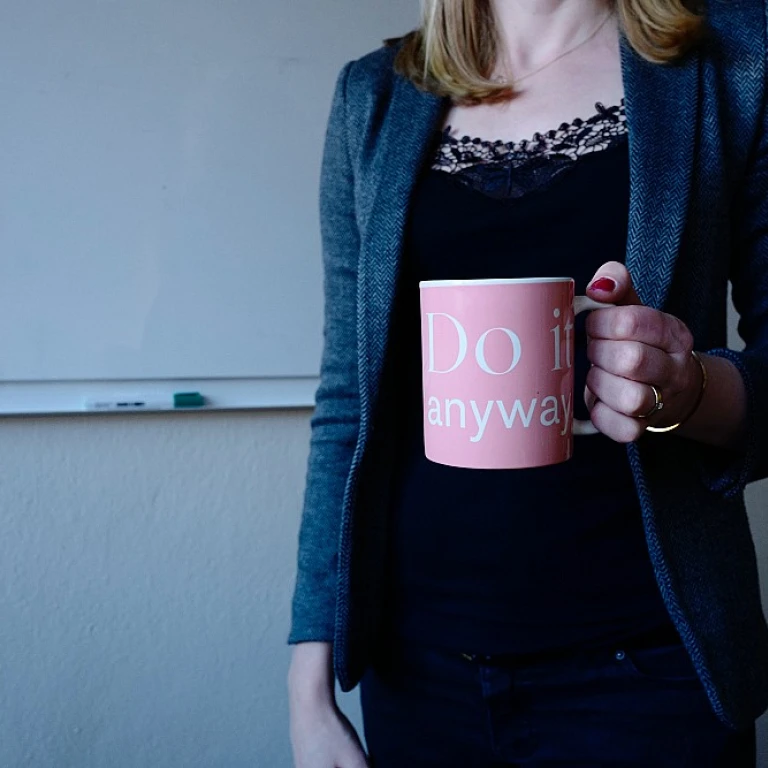
The Importance of Sustainable Sourcing in Today's Business Climate
Sustainable Sourcing: Why It Matters Now More Than Ever
In our fast-paced world, businesses can no longer afford to ignore the importance of sustainable sourcing. With consumers becoming increasingly environmentally conscious, there is a growing demand for products that are not only responsible but also sustainable. According to a Nielsen study, 73% of global consumers say they would definitely or probably change their consumption habits to reduce their environmental impact.
Economic Benefits: More Than Just Ethics
Choosing sustainable sourcing isn't just about doing good—it's good for business. Companies that prioritize sustainability often see increased efficiency and reduced costs. McKinsey reports that effective sustainable procurement practices can reduce supply chain costs by 9% to 16%. Moreover, sustainable businesses attract better talent, as millennials and Gen Z workers prefer employers aligned with their values.
Consumer Trust and Brand Loyalty
A company's commitment to sustainable sourcing directly impacts consumer trust and brand loyalty. A survey by Cone Communications revealed that 87% of consumers would purchase a product based on a company’s stance on a social or environmental issue. Ethical business practices translate to loyal customers who are willing to pay a premium for sustainable products.
Regulations and Compliance: Staying Ahead of the Curve
Governments around the world are tightening regulations related to environmental and social governance (ESG). In California, for example, the Transparency in Supply Chains Act mandates that companies disclose their efforts to eradicate human trafficking and forced labor from their supply chains. Staying compliant not only avoids penalties but also shields businesses from reputational risks.
Sustainable Sourcing and ESG Goals
Integrating sustainable sourcing into corporate social responsibility initiatives enables companies to meet their ESG goals. From Unilever’s Sustainable Living Plan to Nestlé’s commitment to sustainable agriculture, major corporations are leading the charge. These efforts are not only setting industry standards but also contributing to broader sustainability goals. For more on setting and achieving ESG targets, visit our comprehensive guide on ESG strategies.
Key Elements of a Successful Sustainable Sourcing Strategy
Understanding the Core: Environmental and Social Impact
To truly grasp the significance of sustainable sourcing, it's essential to understand the extensive environmental and social impacts that come from supply chains. About 80% of the world’s deforestation is linked to agricultural practices, as reported by McKinsey. This alone shows the gravity of unsustainable sourcing. Similarly, child labor and forced labor in supply chains are major concerns. According to the International Labour Organization, about 152 million children are subjected to child labor, with a significant number involved in supply chains.
Setting Clear Sustainability Goals
Companies like Nestlé and Unilever have taken bold steps in defining and publicizing their sustainability goals. Nestlé aims to reach zero net greenhouse gas emissions by 2050, while Unilever’s sustainable sourcing initiatives focus heavily on improving the livelihoods of smallholder farmers. These clear targets not only shape internal strategies but also set a standard for the industry.
Supplier Engagement and Collaboration
Building a sustainable supply chain means fostering strong relationships with suppliers. Patagonia, for example, has a robust supplier partnership program. They work directly with suppliers to ensure compliance with the Environmental Social Governance (ESG) standards. This approach not only mitigates risks but also builds resilience throughout the supply chain.
Ensuring Responsible Resource Procurement
The sourcing of raw materials like palm oil, a major contributor to deforestation, necessitates responsible procurement policies. The Roundtable on Sustainable Palm Oil (RSPO) is an example of an effort to promote sustainable palm oil production. Companies committed to RSPO standards ensure that their palm oil is sustainably sourced, reducing environmental damage and supporting local communities.
Utilizing Technology and Analytics
Data analytics play a pivotal role in sustainable sourcing strategies. By leveraging data, companies can monitor the environmental and social impacts of their supply chains in real-time. IBM’s Blockchain technology, for example, provides transparency and traceability, ensuring that sourcing practices adhere to sustainability standards. With accurate data, companies can make informed decisions that align with their sustainability goals.
Case Study: Nike's Sustainable Sourcing
Nike’s commitment to sustainable sourcing is evident in its Move to Zero initiative, aiming for zero carbon and zero waste. By 2025, Nike plans to power its facilities with 100% renewable energy, reduce waste through product design, and use recycled materials as stated in their annual sustainability report. This initiative is a benchmark for other companies in integrating sustainability into core business processes.
Stay tuned for more insights on expert practices in sustainable sourcing that drive company growth and innovation.
Expert Insights: Best Practices for Sustainable Sourcing
Industry Experts Weigh In on Sustainable Sourcing
When it comes to sustainable sourcing, learning from the best in the business helps. Hear it from the horse's mouth - experts who have seen it all share their insights on what makes a sourcing strategy genuinely sustainable and impactful.
Trends and Practices That Define Today's Best Strategies
Professionals from all around the globe like Paul Polman, former CEO of Unilever, emphasize the importance of integrating sustainability into the core of business operations. 78% of CEOs agree that sustainability is essential for long-term profitability (source: NYU Stern).
Leveraging Technology for Sustainable Procurement
Experts highlight leveraging data analytics as key to identifying and mitigating risks in the supply chain. Companies like Nestlé have incorporated blockchain technology to ensure transparency and traceability of sustainable raw materials, greatly benefiting their sustainable sourcing initiatives. According to McKinsey, supply chain sustainability can lead to a 33% reduction in adverse environmental and social risks.
Case Study: Patagonia's Commitment to the Environment
Industry leaders believe in the power of setting stringent sustainability goals. Take Patagonia, for instance. This company has been a trailblazer in the sustainable sourcing arena, supporting organic and regenerative agriculture. Their robust sustainable supply chain practices have been instrumental in reducing their carbon footprint by 15% (source: Patagonia Sustainability Report).
Quote from a Leader in Sustainable Sourcing
Let's hear it from a pro, Paul Polman: "Integrating environmental social governance into the core DNA of a business isn't just a requirement; it's an imperious demand from today's conscious consumers."
Real-World Application and Takeaways
Hearing about successful strategies is one thing, applying them is another. From adopting science-based targets for emissions to fostering social responsibility across supply chains, these practices are not just theoretical—they're actionable. Engaging suppliers in sustainability training programs and promoting the use of sustainably sourced materials can have a transformative impact.
Data-Driven Decision Making: Leveraging Analytics for Sustainable Supply Chains
How Analytics Transforms Sustainable Supply Chains
In the fast-paced world of sustainable sourcing, data-driven decision-making is a game-changer. Companies that harness analytics are in the driver’s seat, optimizing everything from procurement to supplier relationships. Consider this: According to a McKinsey report, businesses utilizing advanced analytics can cut supply chain costs by up to 15%.
Data Points Driving Big Decisions
Analytics isn’t just about crunching numbers. It's about turning raw data into actionable insights. Nestle, for example, uses data analytics to track the environmental and social impact of their suppliers. With this approach, they have managed to monitor deforestation risks in their supply chains and ensure compliance with their sustainability standards. In another McKinsey study, 42% of executives highlighted that data and analytics had significantly improved their sustainable sourcing strategies.
The Role of Predictive Analytics
Predictive analytics allows companies to foresee potential disruptions and plan accordingly. Nike is famous for leveraging predictive analytics to anticipate demand and reduce raw material waste. By predicting customer demands and supplier risks, businesses can maintain a robust sustainable supply chain while minimizing their environmental footprint.
Case Study: Unilever's Data-Driven Success
Unilever stands out as a leader in sustainable sourcing, thanks to its robust use of data-driven strategies. The company’s Sustainable Agriculture Code employs data analytics to monitor farming practices and ensure compliance with environmental and social standards. Through their partnership with the Rainforest Alliance, Unilever tracks key metrics like water usage and carbon emissions, aligning their supply chains with long-term sustainability goals.
Expert Insights on Sustainable Procurement Practices
Experts like Peter Spiller of McKinsey emphasize the importance of incorporating data analytics into sustainable procurement practices. Spiller once said, “Sustainability must be quantifiable for businesses to take it seriously. Data analytics provides the tools to measure and improve upon sustainability metrics.” His advice has guided many companies in establishing measurable and achievable sustainability targets.
Measuring Impact and Adjusting Strategies
Data analytics not only helps in tracking progress but also in making necessary adjustments. Pepsico uses data to constantly assess the environmental impact of their packaging. This iterative process allows them to tweak their strategies, ensuring continuous improvements in their sustainable sourcing strategy.
In Conclusion
Whether it is predictive analytics, performance tracking, or making informed adjustments, leveraging data is the cornerstone of a successful sustainable sourcing strategy. Companies that adopt these practices not only achieve sustainability goals but also stay ahead in a competitive market.
Real-World Examples: Companies Leading the Way in Sustainable Sourcing
Nestlé’s Holistic Approach: From Farm to Factory
Nestlé has been a forerunner in sustainable sourcing for years. Through its Creating Shared Value program, the company has taken steps to ensure that not only its raw materials but also its workforce and communities are sustainably managed. According to Nestlé, their use of the Sustainable Agriculture Initiative has led to a 30% reduction in greenhouse gas emissions across their dairy supply chain.
As Niels Christiansen, CEO of Nestlé, puts it, “We are committed to achieving zero net greenhouse gas emissions by 2050, and this can only be achieved through a sustainable supply chain.” The data supports this statement: a 2019 report highlighted that 80% of Nestlé’s raw materials are responsibly sourced, meeting stringent sustainability standards.
Unilever: Partnering for Sustainability
Unilever's Sustainable Living Plan has been lauded globally for its ambitious goals. The initiative has helped them achieve 100% sustainable sourcing of palm oil, certified by the Roundtable on Sustainable Palm Oil. According to a 2020 Unilever report, the company has reduced its CO2 emissions by 50% since implementing the plan.
A key pillar of this success is their partnership with Rainforest Alliance and Forest Stewardship Council, which have helped them adhere to sustainability standards. Unilever’s CEO, Alan Jope, has said, “We believe in working together with our suppliers, as sustainability is a journey best traveled together.”
Patagonia: Ethical Supply Chain Management
Patagonia stands out as an epitome of sustainable sourcing, particularly in the apparel industry. Known for its commitment to environmental and social governance (ESG), Patagonia ensures every step of its supply chain meets its rigorous sustainability goals. The company uses organic cotton and recycled materials, which has allowed them to reduce emissions by 40%.
Patagonia reports that all of its suppliers must adhere to a Code of Conduct, ensuring they meet high environmental and social standards. Yvon Chouinard, the founder of Patagonia, states, “Our business is interconnected with nature, and we need to take care for it to sustain us.”
McKinsey: Helping Companies Transform Their Supply Chains
McKinsey & Company offers consultation services to help companies achieve sustainable supply chains. Their 2021 study indicated that companies embracing sustainable procurement practices see a 15% increase in overall efficiency. For example, McKinsey assisted a leading beverage company in adopting sustainable agriculture practices, leading to a 25% decrease in water usage.
According to McKinsey, “Sustainability is not just a buzzword; it’s a business imperative.” This can be seen in their work with PepsiCo, where sustainable procurement practices led to significantly reduced carbon emissions.
PepsiCo: Making the Business Case for Sustainability
PepsiCo’s Performance with Purpose initiative is centered on building a sustainable supply chain. In their 2020 report, they highlighted that 86% of their agricultural raw materials are sustainably sourced. Such practices have cemented PepsiCo’s stance as a responsible company addressing climate change and other environmental issues.
Through partnerships with various NGOs and adherence to sustainability codes, PepsiCo has set the bar for food and beverage companies. Ramon Laguarta, CEO of PepsiCo, notes, “Success is not just about profits but about leaving a positive footprint on the planet and society.”
Overcoming Challenges in Sustainable Sourcing
Understanding Supplier Dynamics and Relationships
Delving into sustainable sourcing often means wrestling with complexities in supplier dynamics. According to a McKinsey report, 80% of a company's environmental and social impact comes from its supply chain. Nestlé's experience shows that fostering long-term relationships with suppliers ensures better traceability and quality control. They source 70% of their commodities sustainably, guided by their 'Rural Development Framework' aimed at improving supplier livelihoods.
Data-Driven Transparency: A Necessary Toolkit
Achieving transparency isn't just a buzzword but a practical need. In a 2022 survey by the International Organization for Standardization (ISO), 64% of procurement leaders emphasized real-time data analytics as essential for sustainable sourcing. Unilever applies data analytics to monitor the sustainability metrics of more than 30,000 suppliers globally. They report a 10% reduction in their supply chain emissions since 2018.
Overcoming the Ethical and Environmental Dilemmas
Many businesses grapple with ethical issues. For example, 55% of companies still find it challenging to ensure no forced labor is present up the supply chain. Companies like Patagonia highlight the importance of certifications like the Rainforest Alliance. Through meticulous verification processes, they assure ethically sourced products.
Leveraging Certifications and Aligning with Standards
Alignment with international standards can turn the tide for companies facing sustainability challenges. Nike has embraced the Forest Stewardship Council (FSC) certification, ensuring their paper and packaging materials meet rigorous environmental and social standards, reducing deforestation impacts.
Staying Ahead with Innovation and Adaptability
Innovation is an ally in overcoming sourcing hurdles. McKinsey highlights that firms prioritizing sustainable innovation saw a 15% increase in profit margins. Pepsico's initiative to invest $216 million in regenerative agriculture projects aims to reduce 3 million metric tons of greenhouse gas emissions.
A Real-World Case Study: Ghana's Cocoa Sustainability
Ghana stands as a testament to resilient solutions in sustainable sourcing. The Ghana Cocoa Board's collaboration with NGOs has introduced sustainable agricultural practices to over 100,000 farmers. This initiative has not only increased yield but improved in the long term the livelihoods of the farming communities while focusing on environmental conservation.
Overcoming challenges in sustainable sourcing is no small feat, but the journey is richly rewarding. Each step towards more responsible procurement practices nudges companies closer to their sustainability goals, making a substantial impact on the business's bottom line and the planet.
The Role of Certification Bodies in Promoting Sustainable Sourcing
Ensuring Integrity: The Value of Certification in Sustainable Sourcing
Many businesses today are under intense pressure from consumers and investors to adopt more sustainable sourcing practices. Certification bodies like the Forest Stewardship Council (FSC) and the Rainforest Alliance play a pivotal role in ensuring that companies adhere to sustainable principles. According to a study by McKinsey, 66% of consumers are willing to pay more for brands committed to sustainable practices. This indicates a growing trend towards accountability and transparency within the supply chain.
Trustworthy Labels: Forest Stewardship Council and Rainforest Alliance
The FSC certification has been a game-changer for companies like IKEA and Patagonia. By sourcing certified wood and paper, these businesses not only reduce their environmental footprint but also gain consumer trust. Patagonia, for example, claims that their FSC-certified products have resulted in a 20% increase in consumer sales, demonstrating how such endorsements can directly benefit business performance.
Similarly, the Rainforest Alliance certification has been instrumental for food and beverage companies like Unilever and Nestlé. Studies indicate that farms certified by the Rainforest Alliance report 27% higher yields and 35% better soil health, metrics that align with sustainable agriculture goals. Nestlé's coffee and cocoa products, sourced under Rainforest Alliance standards, have gained significant consumer loyalty and reduced environmental degradation.
ISO Standards and ESG Reporting
Adopting ISO standards like ISO 14001 for environmental management and ISO 26000 for social responsibility is also critical. These standards help companies like Nike streamline their sustainability initiatives. In conjunction with Environmental Social Governance (ESG) reporting, they enable companies to communicate their sustainability performance effectively. Nike's commitment to these standards has not only improved its sustainability metrics but has also increased its ESG ratings, making it more attractive to investors.
Combating Climate Change and Human Rights Abuses
Certification bodies also address social issues such as forced labor and human rights abuses in the supply chain. According to the Ethical Trading Initiative, 19% of businesses discovered severe labor rights abuses in their supply chains over the past year. Certifications from organizations like Fair Trade USA and the newly established Sustainable Agriculture Code mandate compliance with social responsibility, thereby mitigating risks and promoting ethical practices.
To delve deeper into sustainable practices, check out this guide on successful digital ecosystems.
The role of certification bodies in sustainable sourcing cannot be overstated. They not only ensure compliance with environmental and social standards but also drive innovation and consumer trust, crucial components for long-term business success.
Future Trends: The Evolution of Sustainable Sourcing
The Next Big Thing: AI and Blockchain in Sustainable Sourcing
Artificial Intelligence (AI) and Blockchain aren't just buzzwords anymore—they're revolutionizing sustainable sourcing. According to a report by McKinsey, AI can reduce supply chain forecasting errors by up to 50%, leading to more efficient resource use and lower emissions. Source.
From Europe to California: Regulatory Changes on the Horizon
Governments are tightening regulations to ensure companies adhere to sustainable sourcing practices. The EU's Corporate Sustainability Reporting Directive will soon require businesses to disclose their sourcing strategies. Legislative initiatives, like California's Supply Chain Transparency Act, are pushing the agenda further in the U.S. According to the Rainforest Alliance, compliance with these regulations will become essential. Source.
The Rise of Regenerative Agriculture
Regenerative agriculture is gaining traction, focusing on improving soil health, increasing biodiversity, and sequestering carbon. Nestlé, for instance, has committed to sourcing 50% of its key ingredients through regenerative agricultural practices by 2025. Source.
Consumer Power: Driving Demand for Sustainability
A study by Nielsen shows that 66% of consumers are willing to pay more for sustainable brands. Companies like Patagonia are leading the charge, integrating sustainable materials and transparent supply chains from the get-go. Source.
The Role of NGOs in Sustainable Sourcing
Non-Governmental Organizations (NGOs) like the Forest Stewardship Council (FSC) and Rainforest Alliance offer certification schemes and guidance, making it easier for companies to adopt sustainable sourcing practices. These partnerships provide credibility and trust, essential elements in today's market. Source.
ESG Goals: Aligning with Sustainability
Environmental, Social, and Governance (ESG) criteria have become integral to company strategy. According to a PwC report, 79% of investors consider ESG risks when making decisions. Businesses that align their sourcing strategies with ESG goals are well-poised for long-term success. Source.
Hyperlocal Sourcing: A Growing Trend
Hyperlocal sourcing minimizes transportation emissions and supports local economies. Companies like Pepsico and Unilever are adopting this model to not only cut costs but also to be closer to their end consumers. This trend reflects a shift towards more responsible and transparent supply chains. Source.














-large-teaser.webp)